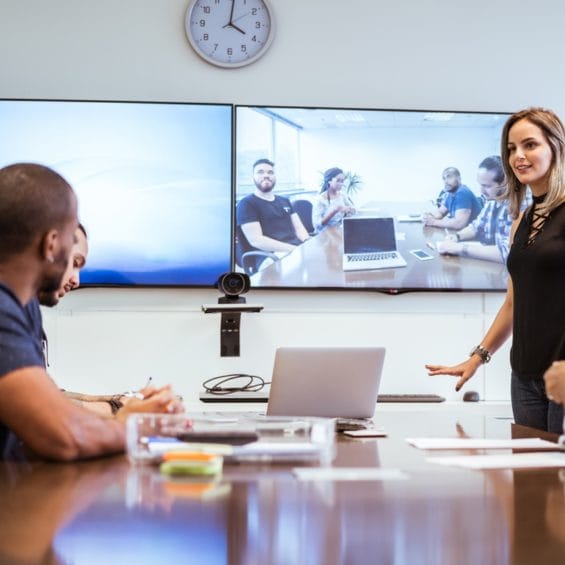Even before Covid-19, virtual meetings had become a necessity in today’s busy working environment and following key conference call tips can greatly improve their effectiveness.
Distractions and interruptions take up more than one-third of the average dial-in meeting, suggesting robust organisation is needed to conduct a quality conference call.
With 163bn minutes spent on conference calls by US and UK workers in 2016 – and the wasted portion of that time costing £26bn – abiding by these seven important tips for conference calls makes business sense.
1. Be time-conscious
Scheduling the conference call for a specific time is central to successful dial-in meetings.
The majority of wasted time on conference calls is down to waiting for people to join. Unless an absent participant is central to the call, organisers should start the meeting on time to reward punctuality.
Waiting for others corrodes concentration levels. To reduce late arrivals, only invite those who are genuinely integral to the meeting.
2. Create an agenda – and stick to it
You know what they say: fail to prepare, then prepare to fail. This is especially true for conference calls.
Sending participants an agenda in advance helps the call stay on track.
This can be particularly important if the conference call forms part of an off-site meeting, where a productive dial-in is critical.
Having a plan also helps maintain call participants’ concentration.
3. Be aware of your surroundings
Each caller should dial-in from a quiet place to reduce background noise levels. Research from the University of Nebraska-Lincoln shows that irritating noises can seriously curtail concentration.
If being in a noisy environment is unavoidable, introduce a conference call rule that callers should put themselves on mute until they need to speak.
4. Encourage participation
It can be difficult, especially on a large conference call, to encourage participants to get involved.
In a conventional meeting, body language and eye contact are used to engage an audience. On a conference call, using positive language, adjusting tone and increasing intonation will serve conference callers well.
Meeting leaders should also ask open questions and moderate the meeting to ensure that everyone participates and has an opportunity to respond – not just the extraverts.
5. Know when to speak
While involvement should be encouraged, conference calls are unproductive if people talk at the same time.
Ask each person to introduce themselves at the start of the call so everyone knows how many participants might speak. Requesting callers to state their name before speaking again also reduces the likelihood of two people trying to talk simultaneously.
6. Make notes and record the call
Notes act as a reference for the main points made and will inform follow-up questions. In addition, recording the conference call can be a useful record, or auto-transcription services can save time recording meeting Minutes.
7. Know the conference call system
If the conference call software has been tested internally before a real call it not only avoids time-wasting but saves anxiety for all.
Do participants need a passcode? Is the moderator’s passcode different to that of participants? How do you record the call?
All these questions and more should be answered before using any conference call technology.
Once lockdown is over, this hassle and stress can also be removed by hosting a conference call at an off-site venue with its own technology and experienced support staff in place.


